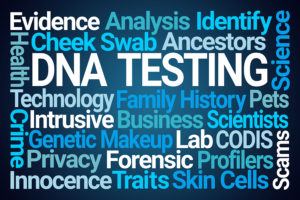 DNA databases are the cause of extensive concerns about privacy. While states, including Nevada, can and do maintain a DNA database, there are strict rules regarding DNA collection and preservation. These rules are necessary to protect innocent people and to make certain that their right to privacy is not violated by intrusive law enforcement obtaining and preserving their genetic material without permission or without justification.
DNA databases are the cause of extensive concerns about privacy. While states, including Nevada, can and do maintain a DNA database, there are strict rules regarding DNA collection and preservation. These rules are necessary to protect innocent people and to make certain that their right to privacy is not violated by intrusive law enforcement obtaining and preserving their genetic material without permission or without justification.
Defendants and those who are involved with the criminal justice system in any way need to understand the rules for DNA databases in their particular state as well as on the federal level. You need to ensure you are not forced to submit your DNA and have it preserved in a database without your consent and without just cause. Not all criminal defense lawyers understand the rules for DNA databases and DNA preservation, so you need to make sure you can find an attorney to assist you with this complex issue.
Nick Wooldridge, Esq understands the rules for Nevada DNA databases and we fight hard to protect our clients from having their rights violated when it comes to DNA. Give us a call to speak with a Las Vegas criminal defense lawyer as soon as you become involved with police or with the justice system so we can protect not just your privacy but also all other rights you have which are guaranteed by the constitution of the United States.
Within the state of Nevada, N.R.S. 176.09119 defines a State DNA database as: “the database established pursuant to NRS 176.09121.”
According to N.R.S. 176.09121, the state DNA database was established in order to serve as a repository for DNA records collected throughout the state of Nevada. This state database also provides DNA records to the Federal Bureau of Investigation (FBI) and establishes policies and protocols to manage the database in support of law enforcement.
For the database to be an effective tool for the FBI and for Nevada law enforcement, there must be DNA kept within the database. N.R.S. 176.09123 provides details on when DNA can be collected and on what information should be provided to the DNA database. For example:
Nick Wooldridge has a long track record of representing clients accused of serious federal and state crimes in Nevada.
It is important to understand these and other rules regarding the collection of DNA so you can ensure your rights are fully respected.
At LV Criminal Defense, we work hard to protect your privacy and to reduce the chances scientific evidence can be used to secure a conviction against you.
If you are concerned about your DNA being kept on file or used to determine if you have committed a crime, give us a call today to find out what Las Vegas criminal lawyers can do for you.